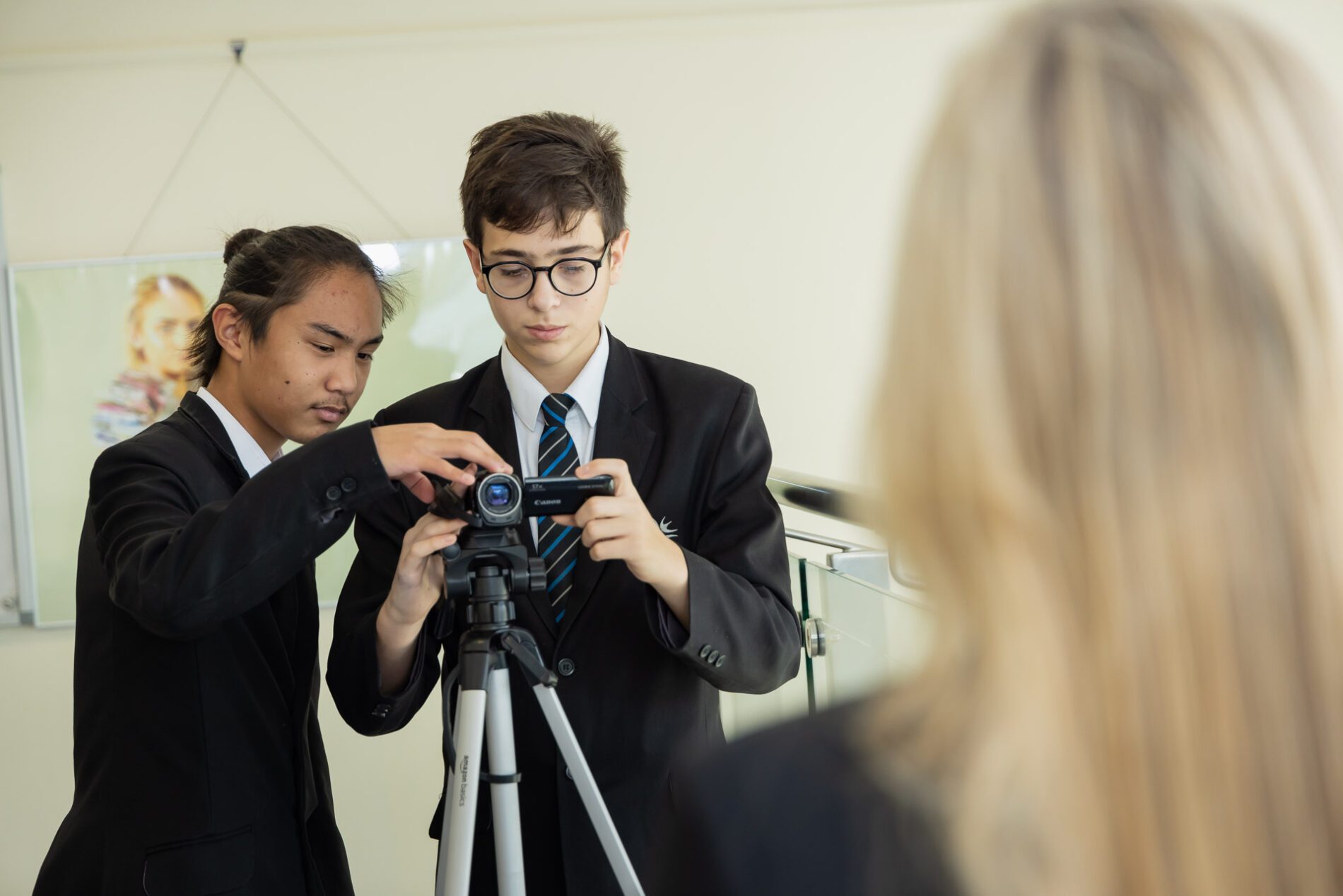Subject Leader: Mr K Kyle – kkyle@knoleacademy.org
Exam Board: Eduqas
Intent
The Film and Media Department is a very popular one and is often over-subscribed. The department is essentially a one-man band lead by a subject leader who lives and breathes the subject, and has an infectious enthusiasm, which the students never fail to catch. Parents and students can be rest assured that the number one aim is to not only teach students the practical, critical and analytical skills they will need to get a good grade in the class, but to also prepare them for all manner of moral and philosophical battles they might have throughout life. Mr. Kyle lives, breathes, eats and sleeps media and film. The students have a walking talking film and media encyclopaedia at their disposal. This will give them a massive advantage when it comes to equipping themselves with what they need.


Implementation
Through the study of a range of different films from around the world (not just Hollywood!) Students aer encouraged to go beyond their comfort zone when it comes to exploring film. For instance, we study non-English language films and films from outside Hollywood and the UK (such as Bollywood and Germany). They are also study British cinema and are invited to explore the diversity of British identity, which is often taken for granted.
My curriculum is designed to develop film literacy, creativity and various media communication skills that prepare students for both further academia contexts and real world itself. Most important of all, students will get to show their learned skills through a practical assessment where they get to show how they are the next Steven Spielberg or Kathryn Bigalow by making a short film themselves.
The overall aim of my department is to spark the fire of creative passion in students for films. The younger generations are more and more in tune with short form media such as TikTok, but this is a real crime because they need to learn that ‘long form’ media such as films have so much to offer them.
Impact
The film and media department has a strong desire to leave students with both fun and poignant lessons. Not only that, but they will also be equipped with skills to prepare them for an ever-expanding media employment landscape. Through the study of cinema, we give students another window of possible artistic expression. I actively engage them through a wide range of technology to engage with a wide range thought-provoking ideas. Although film is often seen as the ‘lesser’ art form, it is also the most egalitarian, inclusive one. Through cinema, students can travel as far down the rabbit hole as they would wish to go. Through the study of cinema, students get to explore different countries, different cultures, and different points of view, as well as some of the most breathtaking examples of art easily comparable to the Mona Lisa or the Sistine Chapel or even the works of Mozart. Film is a form of art which also happens to be one of the most popular forms of art. This is no accident, because the art of film was not designed to be enjoyed simply by the smug few. It was the first form of art designed to be enjoyed by everyone, and that is why, despite all the ‘new media’ rivals, it has survived for over a hundred years.

Examination Information
Exam Board: Eduqas
Qualification: GCSE Film Studies
Component 1: Key Developments in US Film (35%)
Written examination. 1 hour 30 minutes
- Section A: US Film Comparative Study
- Section B: Key developments in film and film technology
- Section C: US independent film
Component 2: Global Film: Narrative, Representation and Film Style (35%)
Written examination. 1 hour 30 minutes
- Section A: Global English language film (produced outside US)
- Section B: Global non-English language film
- Section C: Contemporary UK film (produced after 2010)
Component 3: Filmmaking Coursework (30%)
Production
Learners produce:
- one genre-based film clip (e.g. An opening to a rom-com or a climax to a horror film).
- one evaluative analysis of their film clip.
Enrichment and extra-curricular activities
Students have the film and media editing suites they can use for any projects they would like to do.
Future Courses and Possible Careers
Students can progress further to IB Film and then to Media and/or Film and Television Degrees.
Some examples of careers with an Film and Television degree include filmmaking, cinematographer, screenwriter, Journalist, Copywriter, Teacher, Marketing Executive, Editor, Freelance Writer, Librarian, Publisher, Web Editor, Author, Social Media Manager and PR manager. But this list isn’t exhaustive.
There are also plenty of companies that recruit Film and Media graduates. PR agencies such as Edelman and Brunswick and publishers like Penguin Random House and Harper Collins have a range of editorial, writing and content management roles. Almost all industries now rely on having a very visible presence in the ever more competitive media landscape. This means having media technological skills puts students that learned those skills above other candidates. Not only that, but the theoretical knowledge will also help them use the practical skills they would have learned to best advantage.

